The six pou of Mata Ārahi Manomano drive the questions we have used to profile Māori & Pacific role models, like Anthony, in the Service sector.
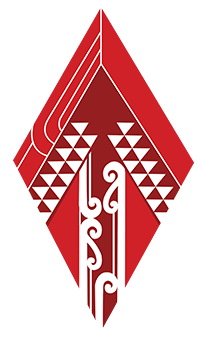
|

|
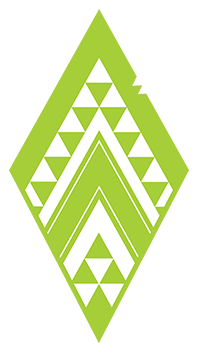
|
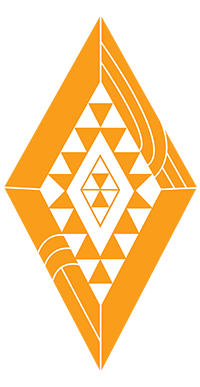
|
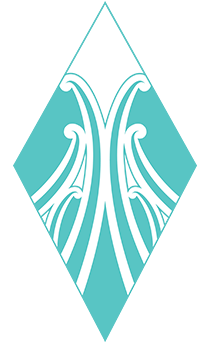
|
|

Representing the levels and forms of aroha that can be found throughout our lives across our many communities. We acknowledge the wide range of obstacles and the journey it takes to overcoming everything that stands in our way to expressing aroha within.
Ka tū ake au ki te maunga karakia a Maungarangi
Ka rere ihoa ki te waituku roimata ō Rākei
Ko uru au ki te Waoku ki Pūwhenua ki Ōtanewanuku ki Poike ki te Tūtarawānanga e rere mai rā o Ātiawa o Waimapu
Ka hono atu rā i te ea o Kaitimako o Waitao i te tāhuna o Ngā“Pāpaka o Rangataua
”Ngaro noa ake te tangata
Waihō mā ngā papaka te manuhiri, e mihi”
Ka hoki au ki te mauri i ōku waka, Ko Mataatua ko Tākitimu
Ko Ngāi te Rangi, Ko Ngāti Ranginui
Te nohongā Tuture ōku hapu
Ko Ngāti Hē Ko Ngāiti Āhi tū mai kotou
Ko Wairakēwa, Ko Te āotakawhaki Ko Ranginui, Ko Urutomo
Ko ngā Pāpaka o Rangataua a mai
I whareroa ki maungatapu puta noa ki Rereiatukahia
Tauranga Moana Tauranga Tangata
Ko rauru i tahi e
Ko Anthony Ririnui ahau
I’m fortunate to be the Kaihautu of Māori Business at ASB. I’ve had a 29-year career in banking with ASB, and I fulfil that role, among other things, within the banking sector. I’m also co-chair of Tāwhia, which is the Māori bankers’ rōpū. I live in Pāpāmoa, Tauranga Moana, with my wife Natalie and four kids, and I’m very involved in my community.
My key strength is my ability in service leadership. I like to harness the skill set I’ve learnt in banking for the betterment of my community, my hapū and my people. I’m a very good listener, and I like to take action and get things done. I’m values-focused and ensure those values are at the forefront of how I lead and engage with people.
I’m so grateful for the support ASB has given me in terms of my own development around leadership and the opportunities that I’ve had.
I’ve had a strong focus in terms of economic development or Māori economic development and the important role we have to bring greater prosperity across the Māori economy.
I can also use my leadership experience assisting others who may be interested in a banking and finance career and trying to draw the parallels that they may not see around the impact they can have with their own whānau, their own hapu, their own iwi.

Seeking guidance from our kaitiaki Hiwa-i-te-rangi, we take a journey through our different aspirations, goals and dreams. This tohu acknowledges hard work, wisdom, the reach of ones goals and the desire that comes from this mahi.
I fell into banking. I had already chosen a career path, to join the Army as an officer, so I could focus on a business education.
This changed in year 13, when there was an opportunity to work for Auckland Savings Bank (now ASB). I missed out the first time, then got called back about a month later and started as a customer service officer.
When I went to Auckland I expected to see other Māori, but I didn’t. It was very lonely coming into the banking sector. It was not an industry that Māori had a lot of representation in and I understood that, but it’s something that I’ve wanted to change.
I’m very fortunate because I got straight into work and then also got invested in, in terms of harnessing my skills. I already had natural relationship skills and I was able to harness those, in terms of looking after a customer. That went up a gear when I started to become more involved in finance and lending.
I’ve had personal moments where we have been able to influence whānau into their first home and that gave me a lot of satisfaction. When you come in with a service mentality and you want to help your whānau, those are real moments of gold for me.

With adventure comes challenges as well as obstacles to overcome. We stand proud as we overcome these obstacles. This tohu draws inspiration from the Niho Taniwha and Aramoana patterns. We acknowledge reaching our destination and preparing ourselves for the many new adventures ahead.
I started as the mail boy, getting the milk and doing entry level jobs. I loved it because I knew that’s where you start and work your way up. I felt like I was really hungry, and I was able to demonstrate that.
I was very proud to be at the bank and about two or three weeks into my job, the managing director of the organisation, Ralph Norris, came to visit. He walked around talking to us and his interpersonal skills were next level, remembering everyone’s names etc.
Later on, I found out his Ngapuhi whakapapa. Knowing that he was Māori and he was the managing director of the Auckland Savings Bank gave me a lot of encouragement. That was a moment where I thought, I wouldn’t mind being like him, what do I need to do?
I took the bull by the horns, progressed within the organisation and went into lending. It brought me a lot of satisfaction being able to help the community through this role. I was offered an opportunity to manage and lead people in my early twenties. I was then offered a branch manager’s role in Waikato.
So, I had consolidated my learning, honed my skills and went into personal banking and home loans, protection for clients through insurances, and then management.

These patterns represent bravery and being strong in the face of adversity. We strive to be persistent and positively challenge anything that threatens to alter, restrict, and put a barrier in the way of our desired pathway.
I had started to plateau in my career and I was thinking about some of the things I got satisfaction from, which was helping my family and my community. At that time, we didn’t have a lot of clarity about lending on whenua Māori and my whānau wanted to build on their whenua Māori.
And then other things were coming up as well within ASB. How well are we looking after our Māori staff? As an organisation, what are we doing to support the Māori economy? As I was in a position of leadership, I was able to ask some of these questions.
I was able to suggest there’s opportunity for us to do better. I was then appointed as the Māori business strategy lead, in 2010.
The defining moment was when the wero was laid in front of me by the CEO of Painui, Hemi Rau, who I knew from the community. He spoke to me about ASB and the better service that we could be providing as an organisation.
Armed with this information, I was able to talk to senior leadership, eventually rolling up to the CEO of ASB to actually create a role. I was able to shape it where I could be of greater service, in terms of access to capital and creating career pathways at ASB for Māori.
There’s been some real headway made in the last five years in terms of access to capital for Māori. This period talks to some of the work with others, with other banks that we’ve put in to set up a Māori bankers rōpū, Tāwhia. I’m very proud of the work that we’ve been able to do with the peer leaders representing other banks.

Here we are drawing inspiration from the Pūhoro pattern. The pūhoro is used here to represent the strength, speed and agility needed to move forward and accomplish ones goals.
I think for people looking for a career in banking or finance perhaps should just keep an open mind. It feels like a privilege to serve and be holders of knowledge that a lot of our whānau don’t have, because we have been underrepresented within the banking sector.
I encourage anyone that’s considering a career in the banking industry and also just to remember that the jobs in a banking career aren’t necessarily in banking, such as marketing, human resources and IT. Reach out to someone and seek out their opinion or their experience.
It’s been incredibly satisfying working for ASB. After 29 years it feels like my second whānau. It’s important to do something I enjoy and say this to my kids. If banking is something that you’re wanting to do, I encourage you to do so.
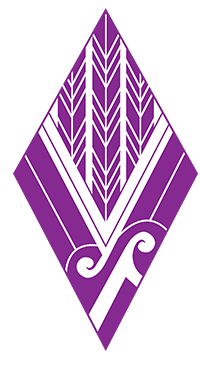
Success, best mentioned in the whakatauki “Tūwhitia te hopo, mairangatia te angitū!” Feel the fear and do it anyway!
Setting Tāwhia up is a memorable event, just after the pandemic lockdown. But if I go back further, there was an earlier conversation around setting up a Māori bankers’ group around 2012, but we couldn’t get it off the ground.
It was a bit hard and we just didn’t have the support across the sector to start a network that could really focus on outcomes for our hāpōri. I wondered if we should have pushed a bit harder at that time, or if it’s something that we could have done to start something a bit earlier.
Today, there are definitely things that are progressing as a banking sector, and one is lending on whenua Māori. There is also more of an approach around hiring Māori into some of the big banks and more of an appetite around embracing Te Ao Māori.
When I got into the leadership, I had to quickly learn new skills so I could push forward, challenge more, and represent not just my whānau but also my hāpori. There are times I have been in quite dark moments but I’ve had to push so I can advance the kaupapa. There have been areas that aren’t natural strengths, but I’ve worked on those to get advancement of this important kaupapa. That’s really important to me.
I’ve been fortunate to fill the kete with things that I think align with me from a number of leaders internally. A lot has actually come from community that I live in and serve in.